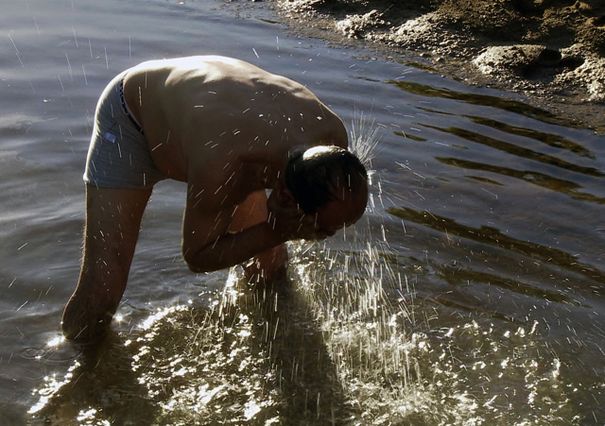Complicity, Victimhood, Violence
The controversial story of a man who became involved at a young age in the horrors of Pinochet's Chilean dictatorship: a documentary in the Berlinale Forum.

THE YOUNG BUTLER
Jorgelino Vergara was nicknamed “El Mocito” by the police agents and thugs who employed him as an errand boy at one of their torture prisons during Augusto Pinochet’s dictatorship in Chile. Vergara was a poor teenager from the provinces when he came to Santiago looking for work, and this was one of the few jobs available. Gradually becoming further enmeshed in the goings-on at the prison, by the age of seventeen Vergara was dragging the bodies of the agents’ victims out of their cells.
Marcela Said and Jean de Certeau’s documentary, THE YOUNG BUTLER (EL MOCITO, Chile), running in the Berlinale Forum, shows Vergara in the present day, in a modern Chile that is attempting to understand its past and bring Pinochet’s agents to justice. Vergara’s case is a difficult one for such efforts, as he can be understood neither strictly as a victim nor as a perpetrator of the violence. THE YOUNG BUTLER does not attempt to resolve the question of Vergara’s apparent complicity in his employers’ crimes, but it is interested in how his position as someone caught up in a horrific world he does not appear to have understood reflects wider problems in his country’s stunted progress towards a mature understanding of its own history.
Said and de Certeau let us know the stakes of their study of Vergara’s situation early on, beginning with him speaking direct to camera, imploring his interviewers (and the audience) to accept his status as a victim of the regime, and not as a criminal. But they let their investigation develop slowly, including long scenes of him hunting for food and tending to the small piece of land he lives on. There is a no-nonsense, harshly realist quality to the directing, with many scenes, including the climactic interview between Vergara and the family of one of the victims, shot in a single, static take.
We might pause to consider what it is that motivates our contemporary interest in stories like this, stories that focus upon the difficulty of apportioning blame to individuals who, through a combination of ignorance, immaturity and a lack of opportunity, go along with evils that are too great for them to fight or question (the 2008 American film THE READER, about a Nazi prison guard, being a notable example). While this more nuanced approach to history and to the individuals left out of grand narratives about good and evil, victims and perpetrators, is to be commended, there is a risk of paying excessive attention to such ambiguous figures as Vergara, and the overly simplistic use of social factors to explain how their criminal complicity (illiteracy in THE READER; rural poverty in THE YOUNG BUTLER) clouds our ability to come to terms with the complexity of political violence. Such an approach, in its focus upon individuals mired in mysterious, inexplicable systems of evil, can prevent us from asking larger questions about violence as a complex, socially structured phenomenon.


301 Moved Permanently